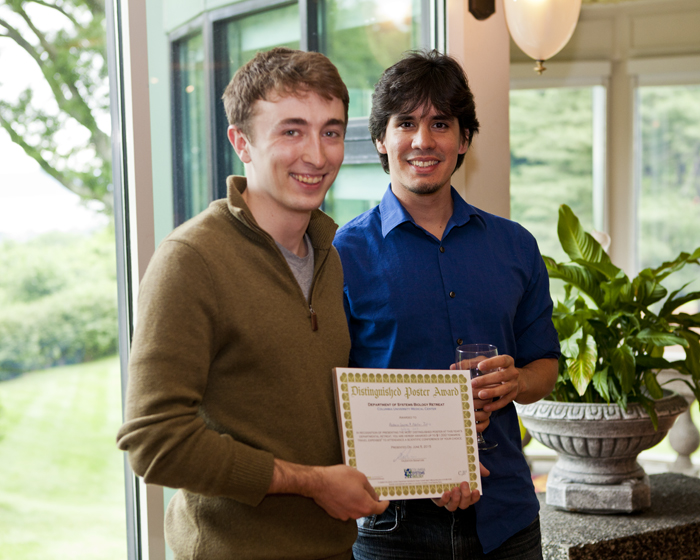
Study lead coauthors Nathan Johns (left), systems biology graduate student in the Wang Lab, and Antonio Gomes, former member of the Wang Lab, now at Memorial Sloan Kettering Cancer Center.
Advances in synthetic biology have already spurred innovation in the areas of drug development, chemical production and health diagnostics. To help push the field even further, and potentially at a more rapid pace, a new, comprehensive resource devised by Columbia University investigators will help synthetic biologists better engineer designs for complex biological systems.
A team of researchers, led by Harris Wang, PhD, assistant professor of systems biology and of pathology and cell biology, report the characterization and analysis of thousands of bacterial regulatory elements in different species of bacteria. The paper , published March 19, appears in Nature Methods .
Synthetic biology employs well-characterized genetic parts to assemble gene circuits with specific functions, such as producing chemicals or sensing the environment. The toolbox of genetic parts to make functioning genetic circuits, however, has been limiting. A key shortfall is the availability of precisely measured regulatory sequences-segments of DNA responsible for dialing up or dialing down the expression of proteins within an organism. For many commercially useful bacteria, tuning gene expression has been challenging because of a lack of reliable regulatory sequences.
"Synthetic biology is now at a precipice where we are not just demonstrating proof-of-concept in the laboratory but we're moving toward real-world applications," says Nathan Johns , lead coauthor of the paper, a member of the Wang Lab and a graduate student in the Department of Systems Biology at Columbia. "To facilitate this, having a wide array of useful genetic components and measurement techniques-in our case, regulatory sequences-are extremely helpful."